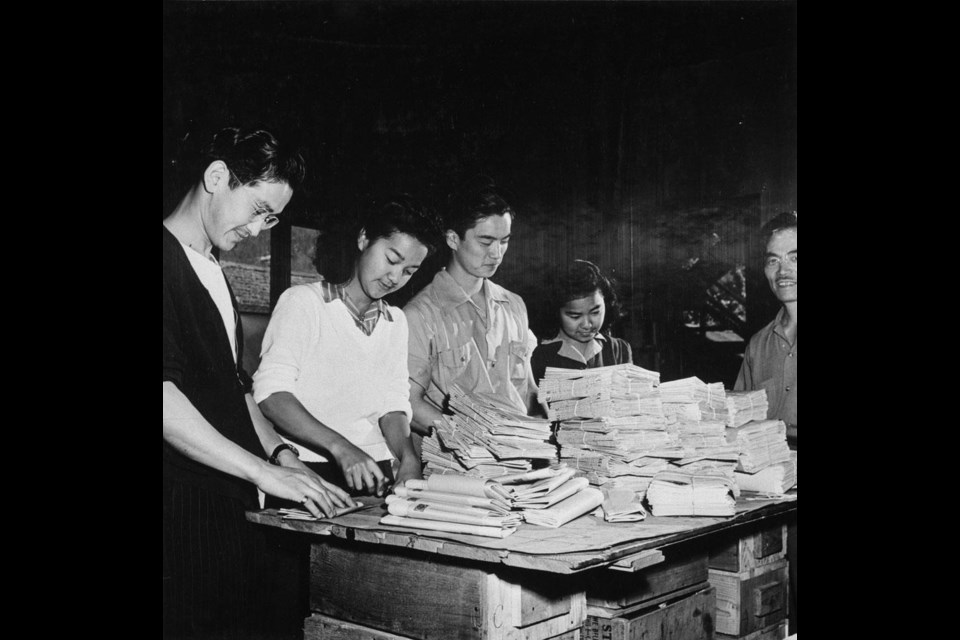A petition started by a Coquitlam resident to keep the archival files of a now-defunct newspaper online is gaining steam.
Today, Aug. 12, more than 500 names are on the Change.org petition launched Aug. 5 by Larissa Kondo to preserve the digital access of The New Canadian, a Japanese–Canadian paper that ran from 1938 to 2001.
This fall, Simon Fraser University (SFU), which hosts the newspaper files that are owned by the Multicultural History Society of Ontario, is taking The New Canadian and 28 other newspapers — penned by and for marginalized groups — off its server.
As a result, researchers and other readers will have to go to Ontario to read the archives in person, at York University in Toronto.
Besides The New Canadian, newspapers also affected include:
- Al-Hilāl
- Berliner Journal
- Canadian India Times
- Canadian Jewish News
- Canadian Jewish Review
- Chinese Canadian Community News
- Chinese Express
- Crescent
- El Popular
- Hung Chung She Po
- Kanadai Magyar Munkas
- L' Ami du Peuple
- Latvija Amerika
- Le Courrier d'Essex
- Le Courrier d'Outaouais
- Le Courrier Sud
- Le Cri de l' est
- Le Cultivateur
- Le Rempart
- Messenger
- Minchung Sinmun
- Modern Times Weekly
- Ottawa Chinese Community Newsletter
- Shing Wah Daily News
- Tairiku Jiho = The Continental Times
- Vestnik
- Voice of Pakistan
- Zhyttia I Slovo
The move to take the publications offline allows SFU Library Digital Collections and Digitized Newspapers to migrate “to a more modern and user-friendly website in mid-2024,” its web page reads.
“The Library took the opportunity to review all the collections and worked with stakeholders and content owners to make place to move some collections and newspapers to new homes.”
While some former newspaper files are moving to other online locations, two are being retired: the BC Multicultural Photography Collection at the Vancouver Public Library and the Northern Justice Native Crime Bibliography.
Paper history
The New Canadian was the only Japanese–Canadian newspaper permitted to print in B.C. during the Second World War as it was in English.
The history of The New Canadian followed the Japanese–Canadians’ path as they were evicted from the West Coast during the Second World War: beginning in Vancouver and then moving to Kaslo, Winnipeg and Toronto.
It had news about the relocations, settlements and economic conditions of the Japanese community that was uprooted.
In her petition call, Kondo wrote The New Canadian served “as a forum for young Japanese–Canadians to share ideas and formulate their Canadian identities at a time when those in power saw them as un-Canadian.”
And she criticized SFU’s decision to move the archival files to Toronto.
“This means most Canadians will no longer be able to read it. It also means that an important piece of B.C’.s history will be inaccessible to British Columbians; this is particularly painful when one considers that the paper only moved out of B.C. because the government forced Japanese–Canadians to go east of the Rockies after the war ended and did not allow them to return to the coast until 1949.”
In Kondo’s petition to keep the newspaper files online, advocates also blast SFU’s decision.
“As a citizen, writer and researcher, I value public access to important cultural and historical documents like The New Canadian newspaper,” wrote Stephanie Bolster of Pointe-Claire, Que.
“Online availability of The New Canadian is crucial if we wish to preserve a public awareness of the history of Japanese–Canadians, which is important to all Canadians.”
“The New Canadian is an important source on Japanese–Canadian history and one of the best documents about the injustice that was the incarceration of Japanese–Canadians,” noted Jonathan van Harmelen of California.
“One of the best ways to educate the public and prevent such mistakes from happening again is to make these archives available online. I hope that Simon Fraser University and the Multicultural History Society of Ontario reverse their decision and keep The New Canadian online.”
“Community history is vital to preserve,” Ted Richmond of Utterson added.
To sign your name to Larissa Kondo’s petition, you can visit Change.org.





